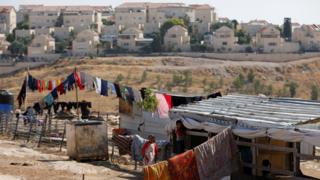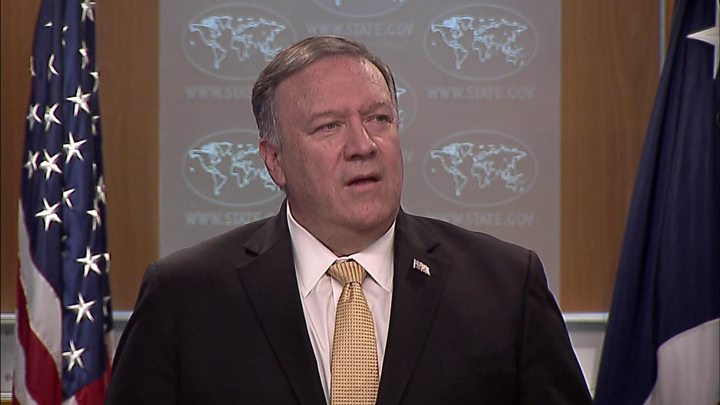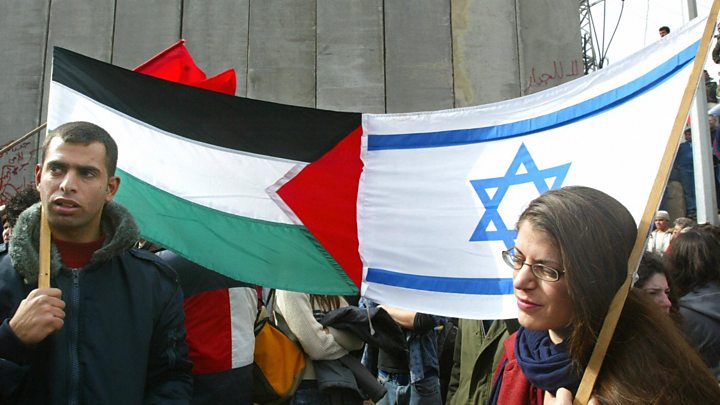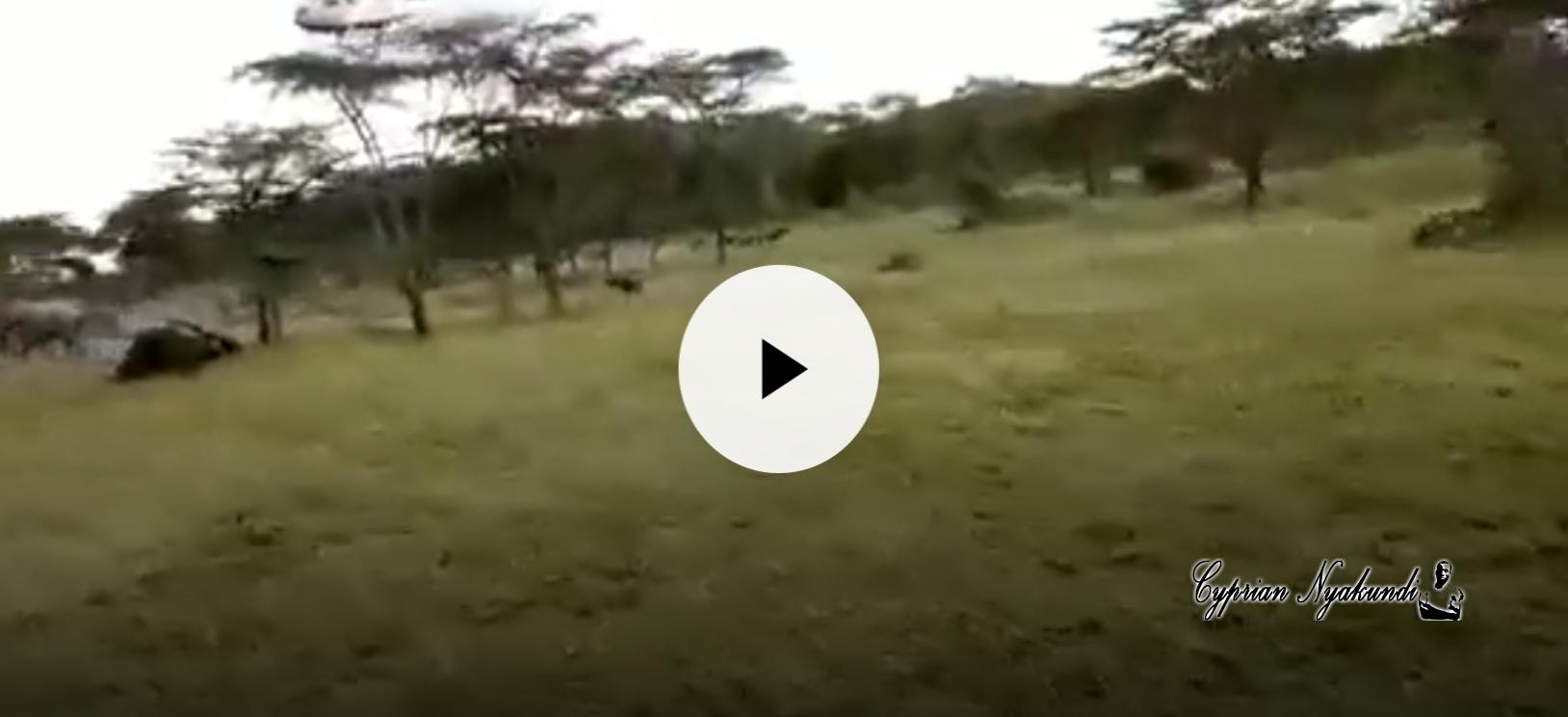[ad_1]
 Image copyright
Image copyright
Reuters
Palestinians have long called for the removal of Jewish settlements from the occupied West Bank
Palestinians have condemned a decision by the US to abandon its four-decades-old position that Jewish settlements in the occupied West Bank are inconsistent with international law.
Chief negotiator Saeb Erekat said it threatened to replace international law with the “law of the jungle”.
But Israeli Prime Minister Benjamin Netanyahu praised the US move, saying it “rights a historical wrong”.
The UN regards the settlements as being illegal under international law.
Settlements are communities established by Israel on land occupied in the 1967 Middle East war. They have long been a source of dispute between Israel and the international community, and the Palestinians.
On Monday, US Secretary of State Mike Pompeo said: “The establishment of Israeli civilian settlements is not, per se, inconsistent with international law.” The status of the West Bank, he added, was “for the Israelis and the Palestinians to negotiate”.

Media playback is unsupported on your device
The move was seen as a victory for Mr Netanyahu, who has pledged to apply Israeli sovereignty over all the settlements, as well as the Jordan Valley and northern Dead Sea.
What are the Palestinians saying?
The Palestinians have long called for the removal of the settlements, where about 600,000 Jews live, arguing that their presence on land they claim for a future independent Palestinian state makes it almost impossible to make such a state a reality.
“Israeli colonial settlements in the occupied Palestinian Territories, including East Jerusalem, are not only illegal under international law, they are war crimes,” said Mr Erekat. “Once the Trump administration decides to undermine international law… this constitutes a major threat to international peace and security.”
Nabil Abu Rudeina, a spokesman for Palestinian Authority President Mahmoud Abbas, said: “The United States is neither qualified nor is authorised to negate international legitimacy resolutions, and it has no right to give any legitimacy to Israeli settlement.”
Palestinian militant groups also weighed in, calling it the official funeral of the Oslo peace process and urging stepped up resistance to the Israeli occupation.

Media playback is unsupported on your device
The European Union’s foreign policy chief, Federica Mogherini, said the bloc’s position was that “all settlement activity is illegal under international law and it erodes the viability of the two-state solution and the prospects for a lasting peace”.
In 2017, US President Donald Trump recognised Jerusalem as Israel’s capital and ordered the relocation of the US embassy to the city from Tel Aviv. The decision was condemned by Palestinians, who want East Jerusalem to be the capital of a future Palestinian state, and the UN General Assembly demanded its cancellation.
And earlier this year, Mr Trump recognised Israeli sovereignty over the occupied Golan Heights, which were seized from Syria in the 1967 war.
Mr Pompeo’s announcement was made two days ahead of a deadline for Benny Gantz, Mr Netanyahu’s political rival, to form a coalition government following an inconclusive general election in September. Mr Gantz was given the opportunity after Mr Netanyahu himself failed to form a ruling coalition.
Hours later, the US state department alerted Americans planning to visit Jerusalem, West Bank or Gaza that “those opposed to the secretary of state’s announcement may target US [government] facilities, interests, and citizens”.
Boost for Israel, dismay for Palestinians
Mike Pompeo said the decision would create the political space for a more likely resolution of the conflict. But that resolution is now more likely to be on Israel’s terms, since it is by far the stronger party.
Dismissing the international legal prohibitions on Jewish settlements undermines the legal framework for the peace process, including the notion of Palestinian national rights and the principle of self-determination.
It will almost certainly boost the movement to expand and annex the Jewish settlements. There has already been a sharp increase in settlement planning and construction since Mr Trump took office.
Palestinians will be dismayed, although not surprised. Palestinian analysts I have spoken with say the growth of Jewish settlements has essentially killed the potential for a viable two-state solution. They speak in terms of a war of position, saying that staying on the land and simply continuing their lives is a kind of non-violent resistance.
What was the previous US position?
In 1978, the Jimmy Carter administration concluded that the establishment of civilian settlements was inconsistent with international law. In 1981, President Ronald Reagan disagreed with that conclusion, saying he did not believe the settlements were inherently illegal.
Since then, the US adopted a position of describing the settlements as “illegitimate” – though not “illegal” – and sheltering Israel from condemnatory resolutions on the issue at the United Nations.
However one of the last acts of the Obama administration, at the end of 2016, was to break with US practice by not vetoing a UN resolution that urged an end to illegal Israeli settlements.
President Trump’s administration has displayed a much more tolerant attitude towards settlement activity than President Obama’s. Mr Pompeo said the Trump administration had studied all sides of the debate and agreed with Mr Reagan.
Are settlements illegal under international law?
Most of the international community, including the UN and the International Court of Justice, say the settlements are illegal. The basis for this is the 1949 Fourth Geneva Convention which forbids the transfer by an occupying power of its people to occupied territory.
However, Israel says the Fourth Geneva Convention does not apply de jure to the West Bank because, it says, the territory is not technically occupied.
Israel says it is legally there as a result of a defensive war, and did not take control of the West Bank from a legitimate sovereign power. It says the legal right of Jewish settlement there as recognised by the 1922 League of Nations Mandate for Palestine was preserved under the UN’s charter.
[ad_2]
Source link














































